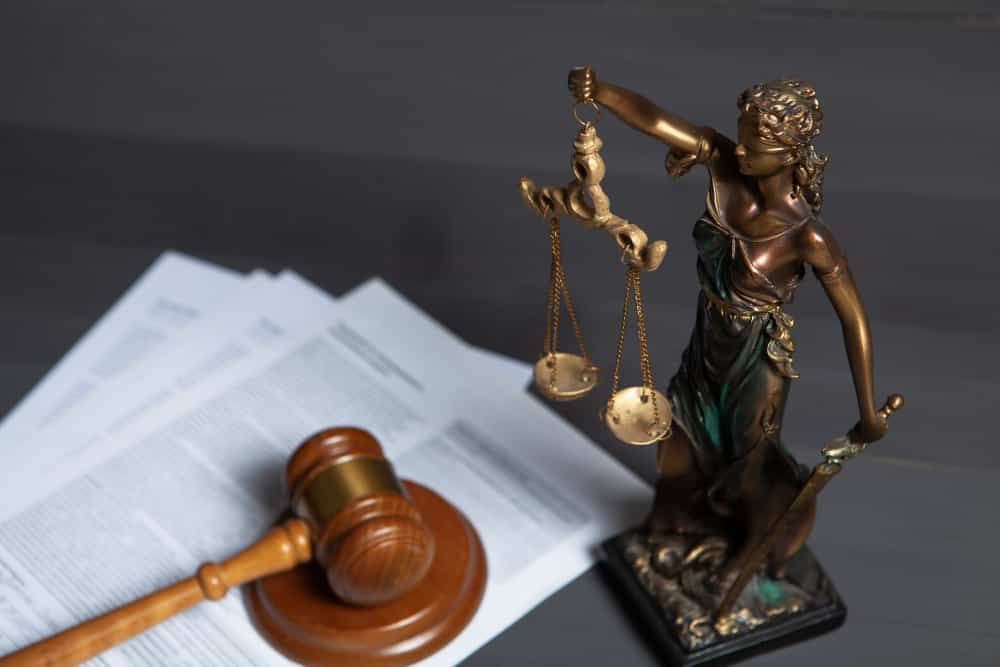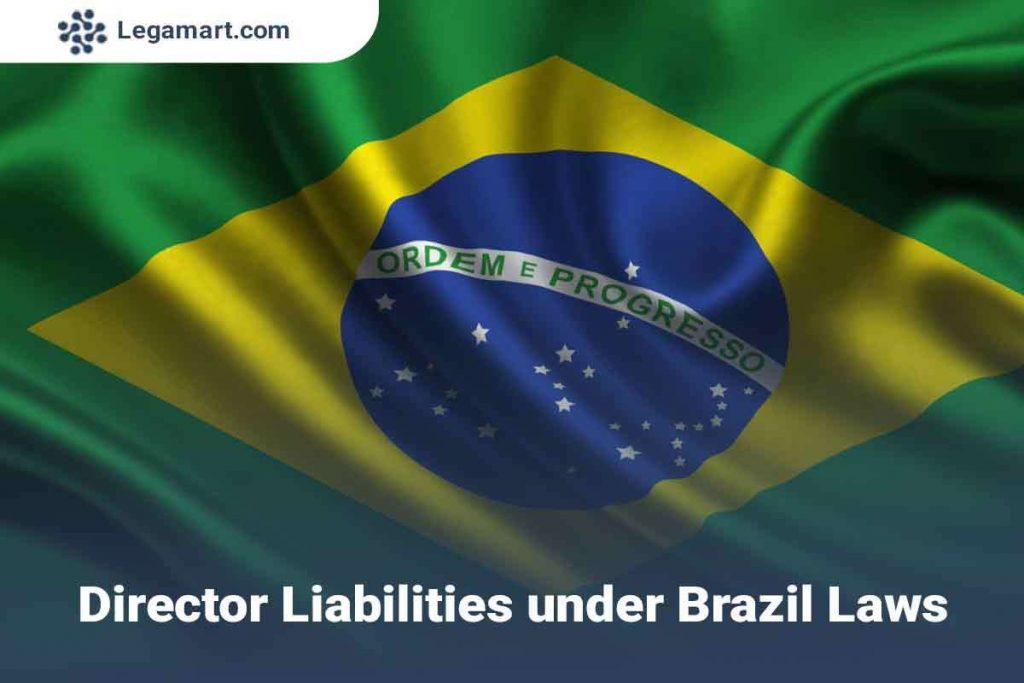Introduction
Are you considering commencing business in Brazil? This article highlights concerns about director liabilities under Brazilian laws. It also addresses some significant legislative developments that strengthened corporate governance in Brazil.
For starters, there are a few common types of companies in Brazil. A limited liability company (sociedade limitada) requires only one director. It may also appoint a board of directors. A corporation (sociedade anônima) requires at least three directors. A local director was a requisite.
Now, Brazilian corporation laws allow the appointment of non-residents as executive directors. Any corporation may be a private or public listed company. The appointment of a board of directors is mandatory for public listed corporations. The Brazilian Securities Exchange Commission (CVM) regulates public held companies. It also sets guidelines that affect the director’s liabilities in Brazil.
What is Brazil’s Foreign Trade Policy? – Legamart
Brazilian corporation law allows separate legal entities. The doctrine of separate legal entity identifies a company as a distinct entity. It directly affects director liabilities in Brazil. This views the misdeeds of a director as offences committed by the company. There are several types of corporate offences, either civil, administrative or criminal in nature. In Brazil, companies are liable for civil offences. Director liabilities under Brazilian laws are extensive.
Corporate Criminal Liability

Brazil has a higher demand for liability insurance for directors and officers (D&O). This is due to the increase in director liabilities under Brazil laws. Corporate crime encompasses the criminal misdeeds of a director or officer. This is subject to the director committing the offence in the interest of the company. The corporate veil holds companies liable for the misdeeds of their directors. Strong corporate veils shield director liabilities under Brazil laws.
When breaching statutory duty, the director’s state of mind determines the criminal liability. The director’s intention construes the intention of the corporation. This is subject to any action being within the ambit of the director’s duties in the corporation. A director is liable if the intention is detrimental to the corporation.
Congress passed the Brazilian Law of Environmental Crimes in 1998 via Law 9605/1998. Article 3 of Law 9605/1998 encompasses director liabilities in Brazil. It recognizes the administrative, civil and criminal liabilities of companies. Corporate criminal liability in Brazil is only applicable to crimes against the environment. The company risks prosecution for involvement in severe environmental damage.
The company can be liable despite the act being a director’s active action or omission. A corporation and any involved board member are punishable for environmental crimes. Director liabilities under Brazil laws include corporate crimes. Common examples are corruption, fraud or money laundering. The corporation will not sustain any criminal liability for the same.
Developments in Corporate Law in Brazil
Industrialization in Brazil started in the 1930s during the great depression. Brazilian Corporation Law was only implemented in 1940. The government controlled the stock, and brokers were public servants. Only in 1965, Law No 4728 granted self-governance of stock exchanges. It also enabled brokers to form corporations.
The stock market underwent extensive reform in the 1970s. Federal Law 6385/1976 constructed the Security and Exchange Commissions (CVM). This regulated publicly held companies. It also allowed a minority shareholder to trade shares at the same rate as the controller. This is the take-out rights of the minority shareholder.
Privatization in the 1990s made the Brazilian stock market an international attraction. The controlling shareholder group deterred Brazilian legislation that protected the minority shareholder. They view an improvement in minority rights as the devaluation of the controlling shareholder. Law 9457/1997 further removed the take-out rights of the minority shareholder. The corporate governance practices under Brazilian legislation were still very lax.
The structure of Law 10303/2001 intends to protect the rights of the minority shareholder. It encourages democratic decisions and increases the accountability of senior management. The BMF & Bovespa (now B3) constituted three governance markets. It consists of Corporate Governance Levels 1, 2 and Novo Mercado (New Market). This functions as a listing segment for share trading. It is exclusive to companies that abide by prescribed corporate governance practices.

Among the three, Novo Mercado is the highest standard listing. It requires shares issuance with voting rights. This restores the take-out rights of minority shareholders. Novo Mercado also requires at least 25% of shares to be controlled by minority shareholders. Disclosure of trades by the controlling shareholder or senior manager is mandatory. The financial statements must adhere to the United States GAAP principles. Any arbitration involving a Brazilian entity should end within 180 days. This standard nurtures equality among shareholders.
Corporate Governance Level 2 maintains most requirements of Novo Mercado. The dissimilarity is the allowance of non-voting shares. Corporate Governance Level 1 is lenient in comparison. It requires financial information on a quarterly basis. This encourages improvement in disclosure standards.
In 2003, the Brazilian Civil Code further developed Brazilian corporate law. The Brazilian Code clarifies the director liabilities under Brazil laws for corporate offences, which include breach of bylaws, misconduct or negligence. The Brazilian Clean Company Act commenced in 2014. It contains provisions that prohibit corruption and illegal activities. It is akin to corruption or bribery provisions in the Foreign Company Practices Act.
Business Environment Improvement Law 14195/2021 improved corporate governance in Brazil. This simplified the method for business registration in Brazil. It introduced super-voting shares for private and public corporations. It prohibits the Chief Executive Officer (CEO) from chairing the board of directors. Public-held companies must keep independent board members to the board of directors. These laws strengthen corporate governance in Brazil.
Directors Criminal Liability

Corporate criminal liability in Brazil is very limited. Directors or officers bear most of the criminal liabilities of Brazilian corporation law. The only exception is environmental crimes. A director will not suffer criminal liability for all criminal offences as criminal liability relies on the specified duty of the director. The offences committed while carrying out duties determine director liabilities under Brazil laws.
A secure compliance program helps mitigate the penalty for corporate offences. This was one of the relevant elements pursuant to Decree No. 8420/2015 before its recent revocation. The new Decree 11129/2022 also emphasizes compliance programs for companies. This is imminent to director liabilities in Brazil. A director should fortify the corporation’s compliance program. The lack of a compliance program establishes a criminal liability chain. This identifies the director’s inaction as a criminal misdeed. A director participating in a criminal causal chain risks criminal liability. Director liabilities under Brazil laws are adverse.
A director risks criminal liability for criminal actions. The omission of contractual liabilities also invokes director liabilities under Brazil laws. Stronger corporate governance helps assess the risks of directors. Meetings between the board of directors and other officers can manage the risks. The major issues for deliberation are operational liabilities, corruption and money laundering. A general meeting also helps directors ensure checks and balances in the company. If you need any insight to ensure compliance, please feel free to ask us at Legamart.
Conclusion
The extent of corporate criminal liability in Brazilian corporation law requires further development. The Brazilian company escapes criminal liability in most instances. No entity is above the law. The existence of criminal liability for the misconduct of a company promotes deterrence. A directors legal liability in Brazil law is disproportionate to corporate criminal liability. Corporate governance in Brazil corporation law is flourishing with recent developments. It is time for federal law to develop on corporate criminal liability. This will attract foreign shareholders and investors to conduct their business in Brazil.
The stronger corporate governance indicates that it is a good time to commence business in Brazil. Director liabilities in Brazil require specific and adequate insurance coverage. It is also vital to have an effective compliance program. Consultation with Legamart will address all your legal concerns. We have lawyers who can assist in every legal stage of your business. We will be happy to provide legal consultation tailored to your needs.




